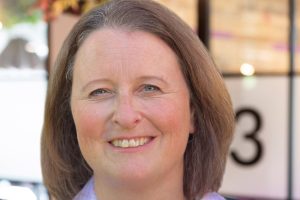Birmingham needs to boost knowledge-based economy

BIRMINGHAM needs to replicate its successes in the golden age of the industrial revolution if it is to take maximum advantage of the knowledge economy, business leaders have been told.
David Hardman, managing director of Birmingham Science Park, told a meeting of digital sector businesses at Millennium Point, that the city’s heritage was built on manufacturing and industrial innovation.
“This is a very important part of our heritage but in the future we need to be looking to the knowledge based economy for our growth.
“There is a serious need to drive the aspirational side of the knowledge economy in Birmingham and if we are going to move forward we need exemplars from within Birmingham and the West Midlands region,” he said.
The event, organised by Birmingham Science Park Aston and sponsored by Birmingham City Council, featured some of the brightest and best of the region’s success stories.
“Building on our industrial heritage it will be 21st century technologies that will drive the region’s innovation economy – this is our future,” said Mr Hardman.
The seminar heard from senior executives of the region’s leading knowledge-based businesses including former West Midlands police officer Phil Cleary, chief executive of SmartWater Technology, which is using a fine spray containing a unique oxide code to mark criminals as having broken into specific vehicles or premises.
The technology is being taken up by police forces and security companies both in the UK and increasingly abroad.
Other speakers included representatives from Majestic-12, Arden Photonics, Codemasters, Talis Information and Cisco Systems.
Outlining the opportunities in Birmingham and to the wider global market place were Ian Meikle of the Technology Strategy Board, Toby Wilson Waterworth from the Global Entrepreneur Programme of UK Trade & Investment, and Jack Glonek, Assistant Director Investment, Enterprise & Employment, Birmingham City Council.
Mr Glonek said the public sector was at a crossroads.
“There are four key drivers that will dictate how the future of the public sector turns out.
“We are under severe financial pressure, there is an expectation of local delivery, there is an expectation of better delivery and outcomes, and we are being called upon to deliver on demand,” he said.
He said that Birmingham City Council, with a workforce of 55,000 and a turnover of £3.2bn, could have a major impact on the innovation agenda in the city and the region.
“We need to lead the way in market innovation, public innovation and social innovation. We must provide civic leadership on our procurement issues,” he added.
But he stressed that innovation must be a means to an end and cited the challenge of the concept of ‘Total Place’ as an example whereby future civic buildings might incorporate in one premises bodies such as the council, police, health and library facilities.
And he highlighted the opportunities for entrepreneurs that a squeeze on the public sector purse would inevitably bring.
“We will undoubtedly be outsourcing a shedload of services that we currently do now. That is almost a given,” he said.
He said one example of where innovation could play a major role in delivering better services in the public sector was the PFI contract won by Amey to replace 90,000 of the city’s lamp posts.
“This is not just an opportunity to install low carbon light bulbs, a lamp post could also be a wi-fi station for broadband and a charging station for a future generation of electric cars.
“There will be real opportunities for entrepreneurs in the knowledge economy to drive forward innovative solutions in the public sector,” he said.
Mr Hardman said the challenge now facing the city and the region was to address what needed to be done to promote future success of knowledge based businesses in and around Birmingham.
He said that Birmingham Science Park Aston provided the opportunity to innovate through partnership.
“We are creating an environment in which businesses can innovate and grow, not just within the Science Park but also within the region,” he said.
He said Birmingham should follow the example set in other areas where high growth businesses were encouraged to prosper.
“High growth companies only represent 6% of UK firms, but they represent more than half the growth in jobs. Most of these companies are small to medium sized firms.
“In Cambridge, there is 2.5% unemployment and 1,400 high-tech firms where 80% employ less than 10 people.
“This is the challenge, this is the opportunity for Birmingham and the West Midlands region,” he said.







